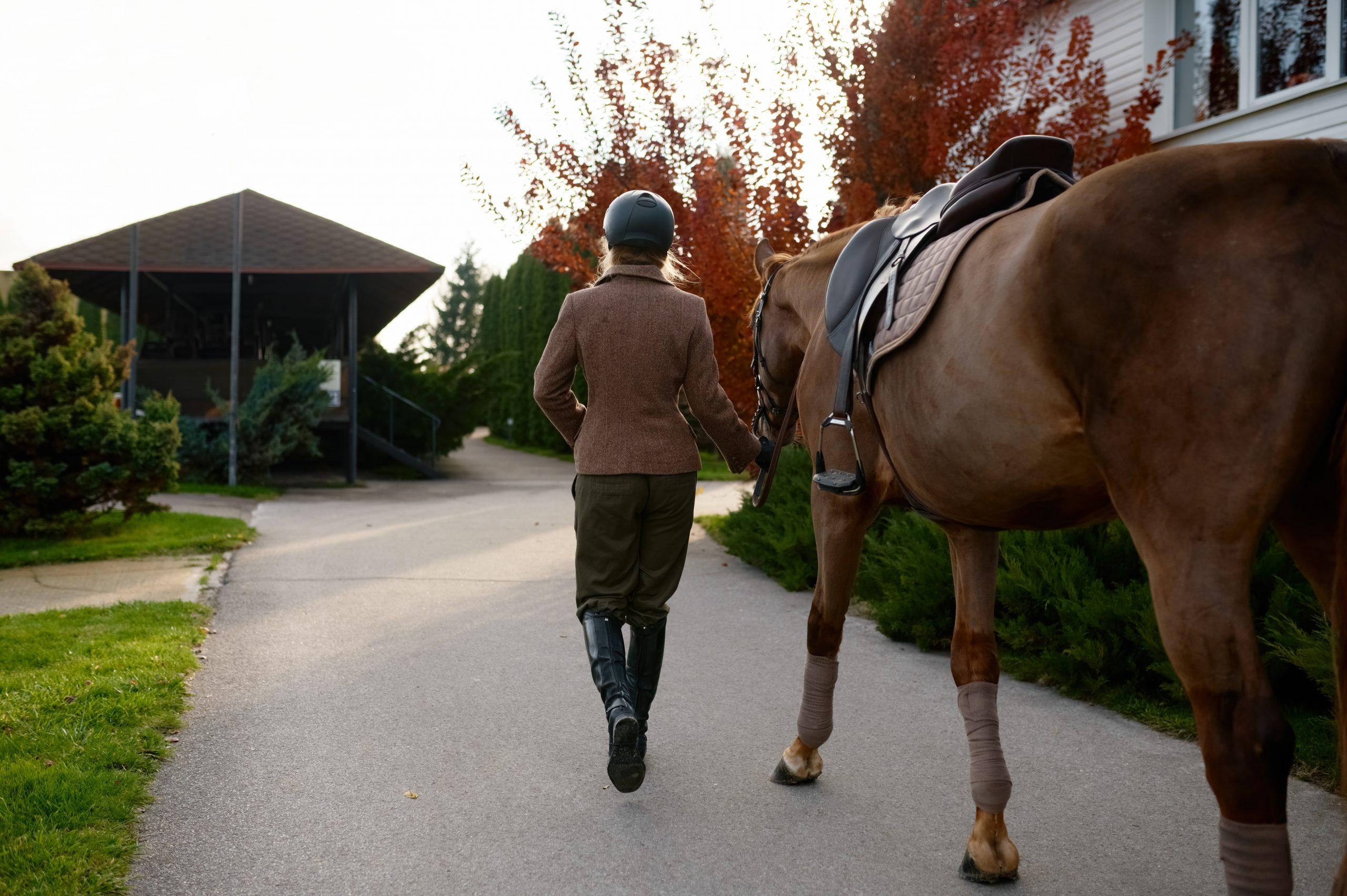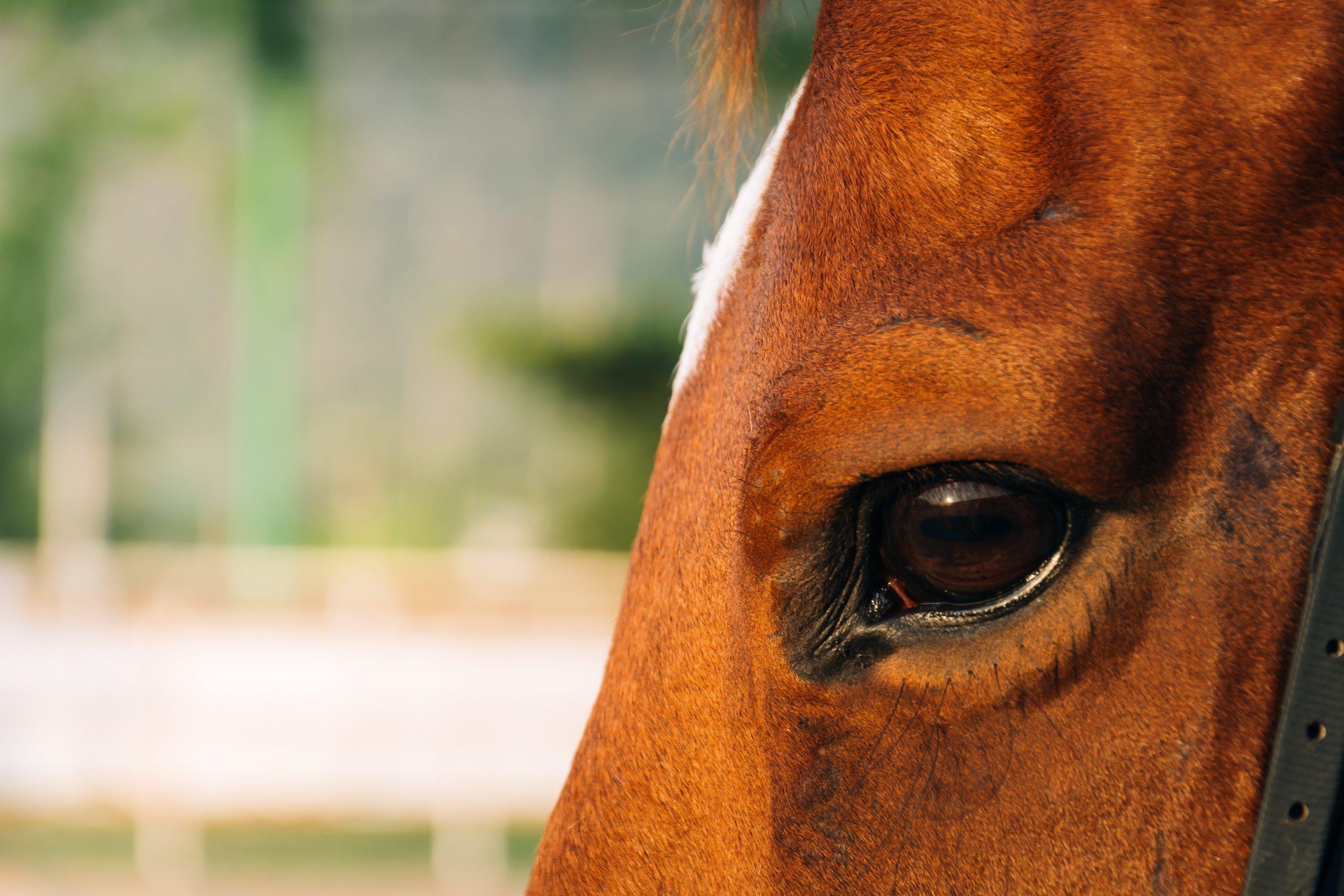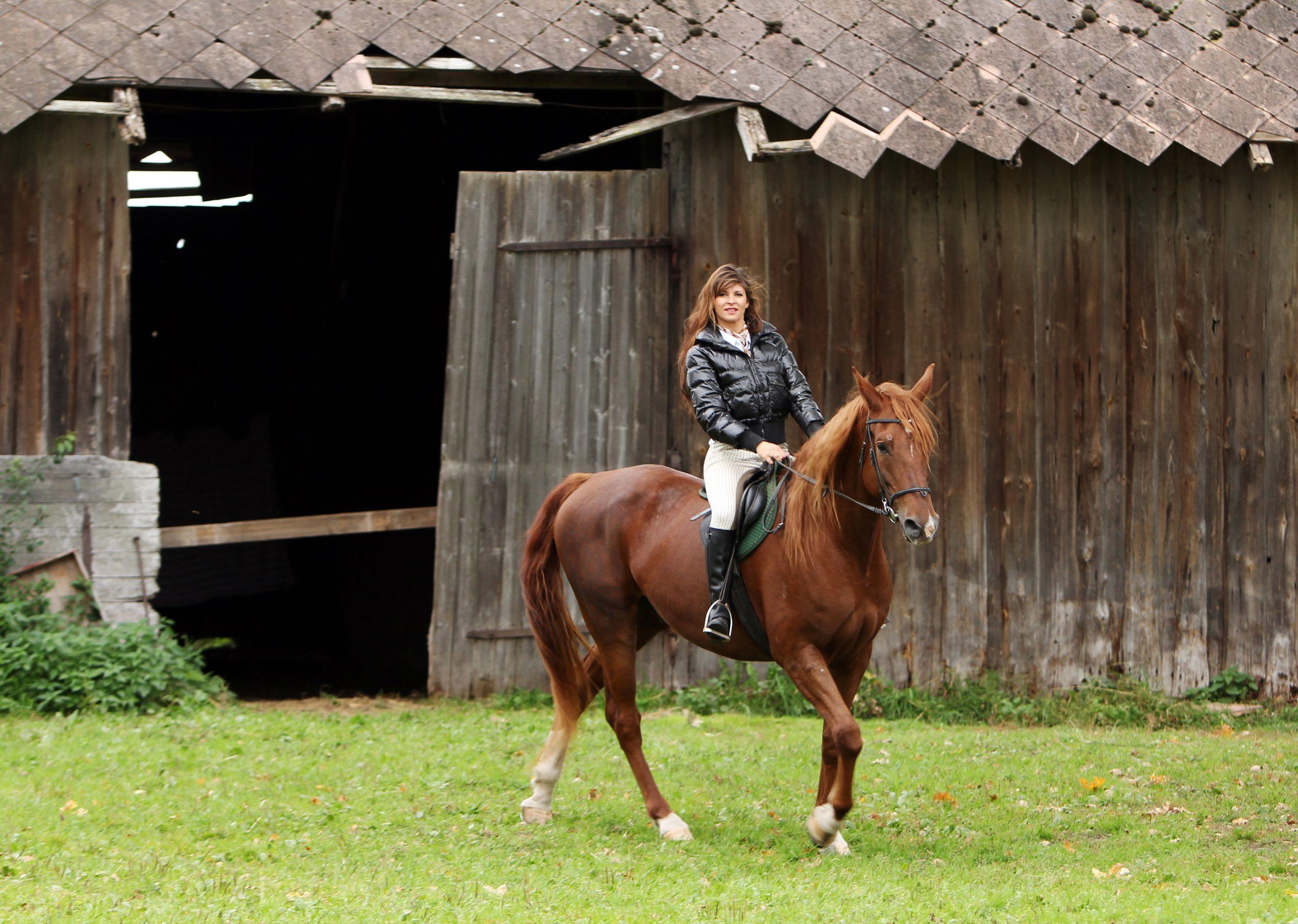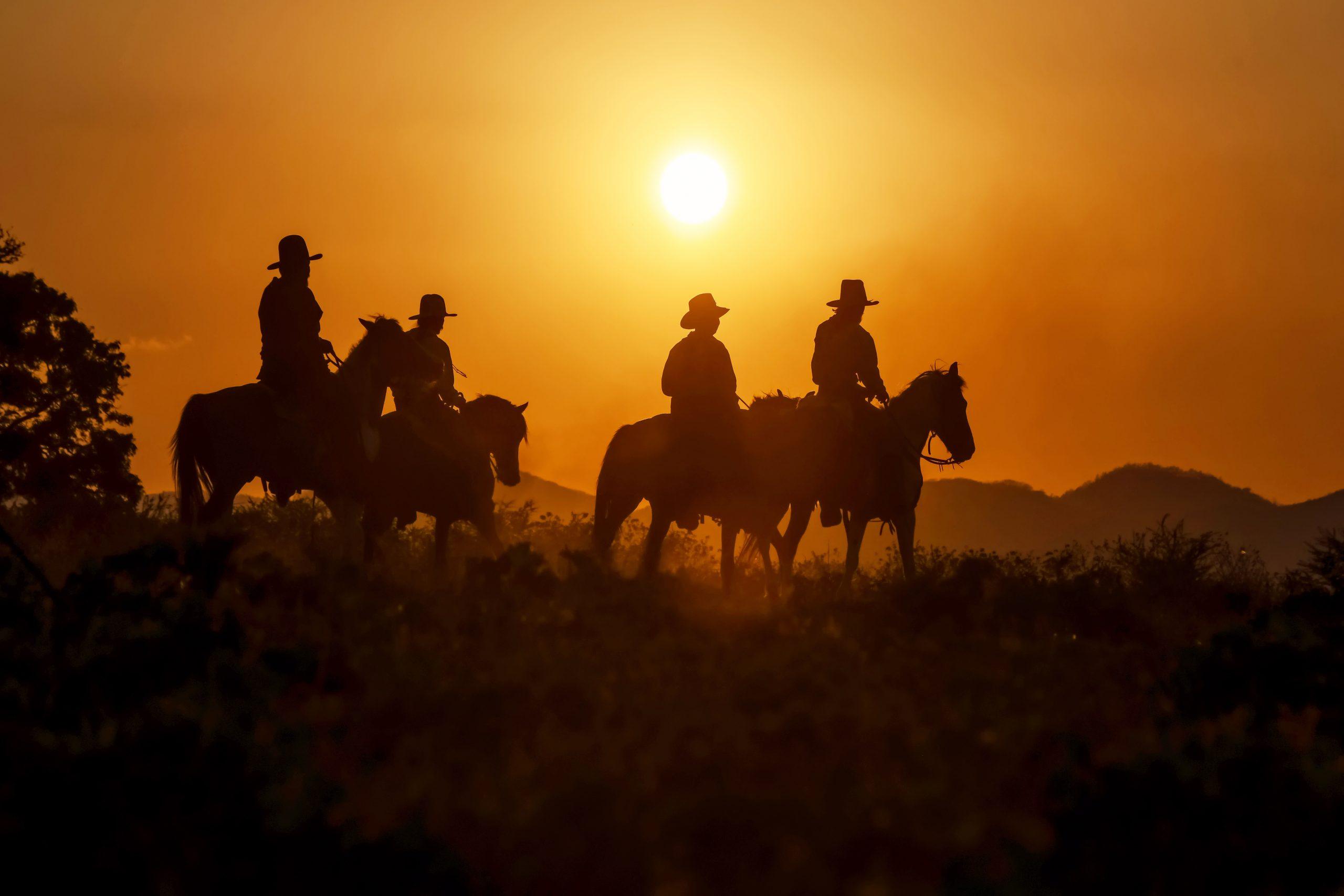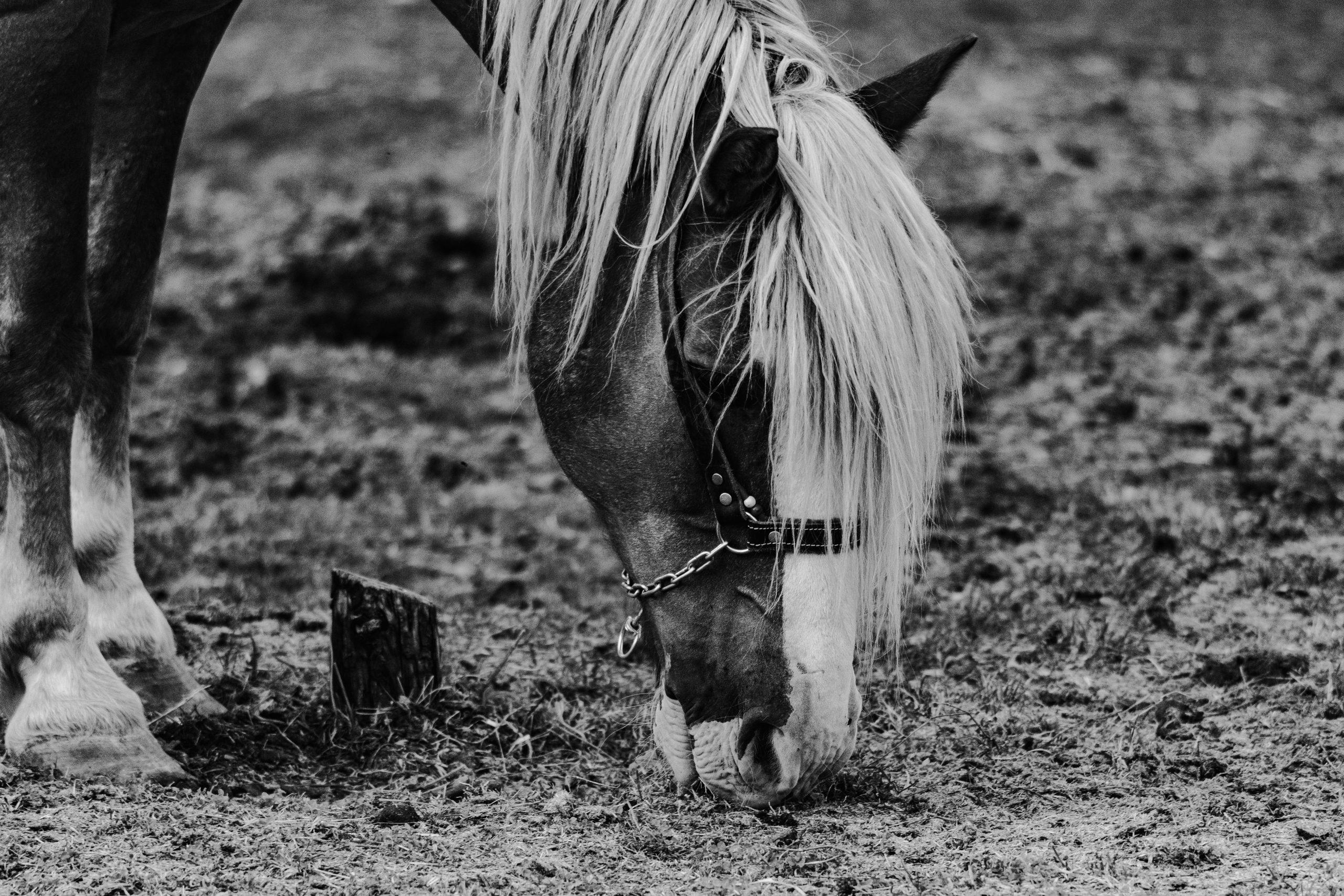Understanding horse anxiety
Horse anxiety is a common occurrence that can stem from various sources such as fear, trauma or stress. Horses show signs of anxiety through body language, including sweating, trembling, and tail swishing. To understand horse anxiety better, you must observe your horse’s behavior both in the stable and out in the open.
To tackle equine anxiety effectively, give your horse time to adjust to new environments before introducing anything new. Create a positive reinforcement environment when grooming or interacting with your horse, building mutual trust while maintaining a safe distance. Using natural remedies like chamomile tea or lavender oil can also calm down nervous horses.
Remember to never force your horse into an uncomfortable situation; understand their likes and dislikes and form appropriate training techniques that suit them best.
Pro Tip: Never punish anxious horses as they may only become scared further. Instead, use positive reinforcement techniques and make necessary adjustments to help them feel more comfortable and secure.
Why use boring techniques when you can just throw a horse a party?
Techniques to calm a nervous horse
To ease the anxiety of your nervous horse, implement the following techniques using visualization and relaxation exercises, groundwork and desensitization training, patience and consistency in training, supportive supplements and nutrition, and seeking professional help and advice as your solution. These sub-sections offer various strategies to soothe your nervous horse holistically.
Visualization and relaxation exercises
To ease a nervous horse, it is crucial to employ “Mental Imagery and Relaxation“. This technique helps horses attain the right mindset by stimulating their peaceful thoughts while reducing anxiety.
A 3-Step Guide for practicing “Mental Imagery and Relaxation” are as follows:
- Find a quiet and familiar place where the horse can feel comfortable.
- Use calming verbal prompts and gentle physical contact to assure the horse’s comfort.
- Create an environment of physical comfort by designing reassuring thoughts in the horse’s mind. For instance, visualizing a pleasant arena or picturing relaxation sensations throughout the body.
It’s essential to begin gradually with these behaviors, so rushed relaxation exercises won’t disturb the equine. With patience and regular practice, though, this process can lead to long-term benefits for horses.
Whilst employing mental imagery and relaxation practices, you must appreciate that every horse has its unique set of requirements when it comes to calmness techniques. So take care not to expect rapid results in your training sessions.
I remember one time working with a particularly skittish horse who would unexpectedly pull back or throw his head up whilst being mounted. Consistent use of visualization techniques helped us gain trust over time until I finally saw him walk comfortably towards me without any apprehension at all!
Groundwork and desensitization training: where horses learn that scary things are just opportunities for snacks.
Groundwork and desensitization training
Grounding and habituating techniques to reduce anxiety in a horse can be trained via groundwork drills and desensitization training. These methods help the horse overcome fear or apprehension towards specific objects, sounds or actions that may trigger an unpleasant experience.
Here is a four-step guide to Groundwork and desensitization training:
- Choose a suitable environment
- Start with basic groundwork exercises
- Gradually introduce unfamiliar objects, sounds or activities
- Reinforce positive behaviour with verbal and physical cues
Alongside the typical exercises of leading, lunging and stopping on cue, unique tools such as tarps, cones, flags, balls, coloured poles can also be used to simulate different scenarios that the horse may encounter. Practising these routines regularly can benefit the horse’s trust and obedience towards its handler.
A methodical implementation of these techniques has empirical evidence supporting effective stress reduction in horses. According to Dr Sharon Crowell-Davis of the University of Georgia College of Veterinary Medicine, “Desensitization is a scientifically-based method of teaching animals to become less fearful or anxious. It works by gradually increasing degrees of exposure to increasingly fear-provoking stimuli over time while simultaneously preventing reactions from happening“.
It is crucial to remember that every horse reacts differently and requires individualized attention when practising these methods. Groundwork and desensitization training should be conducted under supervision by experienced trainers for optimal results.
If at first you don’t succeed, try and try again…unless you’re training a horse, then just keep trying until you get it right.
Patience and consistency in training
Consistent and Calm Training of an Anxious Horse
Training a nervous horse requires consistent repetition and calmness from the trainer. A horse can sense anxiety, fear, or stress that the trainer may be feeling and it can worsen the situation. To overcome this, patience and a consistent approach are essential.
Continue training sessions in the same location at the same time every day to establish a routine. This creates familiarity and minimizes the anxiety level of the horse. Additionally, utilize positive reinforcement techniques like treats or verbal praise when they follow commands correctly.
Using relaxation and massage techniques such as grooming, stroking, or applying calming scents can also help anxious horses relax. Finally, be mindful not to push too hard for quick results; take it slowly but consistently over many days to make significant progress.
By following these suggestions of being patient with repetition, offering positive rewards for good behavior, providing comforting massages, and taking sufficient time, you’re likely to develop a trustworthy connection with your equine friend while keeping them calm during training sessions.
Give your horse the right supplements and nutrition, because a happy gut equals a happy hoof.
Supportive supplements and nutrition
Supplementation and Nutrient Support
The provision of supportive supplements and nutrition is highly recommended to calm nervous horses. Some effective tactics include:
- Feeding slow-release carbohydrates, such as beet pulp, to help maintain a consistent energy level throughout the day.
- Adding magnesium supplements to the horse’s feed, which are known to have calming properties for both the body and mind.
- Incorporating probiotics into the horse’s diet can assist in promoting good digestive health.
- Supplying mineral blocks containing adequate trace minerals such as zinc, copper, selenium etc. that work together in keeping the horse’s nervous system well maintained.
- Giving vitamins like ‘B’ complex‘ which play an essential role in lessening stress related behaviors by relaxing muscles and facilitating neurological functions.
Excessive cortisol levels may occur when your equine friend is under stress; fortifying horse feed with antioxidant-rich ingredients like cherries, blueberries or green tea may minimize oxidative damage resulting from an over-abundance of cortisol.
Studies have discovered that supplying supplementary nutrition rich in Vitamin E can regulate nerve signals integrity leaving horses calm during training activities.
Researched fact: A study done by researchers from Michigan State University found that good-quality hay provides much-needed fiber to digest food better or ‘bit more efficiently’, thereby contributing positively towards reducing anxiousness.
Don’t be afraid to seek professional help for your nervous horse, unless your horse is afraid of therapists in white coats.
Seeking professional help and advice
Getting insights about the horse’s behavior from a professional equestrian can assist in calming a nervous horse. By observing and analyzing the body language and behavioral patterns of horses, they can provide custom techniques and exercises for the horse. These tailored solutions are considerably more effective than general ideas that may not work for your horse.
Professional equestrians would also take into account the size, breed and activity level of the horse while offering recommendations to calm a nervous horse, suggesting different remedies to try such as changes in diet or adding soothing herbs like valerian root.
It is best to seek out expert advice on horse behavior when considering calming down horses prior to trying any new technique. The professional will assess your equine’s fear motivators, recognize how you interact with it and what triggers your horse’s anxiety before creating an appropriate intervention program.
The training process should also be gradual, allowing the horse ample time to assimilate new concepts without overwhelming them.
The veterinarian could offer insight on available calming agents appropriate for every particular situation. These products range from natural homeopathic formulas comprised of essential oils to sedative medications prescribed by the vet.
By addressing any pain or underlying discomfort before calming a nervous horse, riders create consistency and trust with their animals. A brief walk through in a familiar environment can aid in achieving this goal. Offering lots of reassurance combined with positive encouragement can also increase their confidence on you as their leader.
Figuring out why your horse is anxious is like playing a game of Clue. Except instead of Colonel Mustard in the library with a candlestick, it’s probably something like a sneaky squirrel or a spooky shadow.
Importance of identifying and addressing underlying causes of horse anxiety
To address the underlying causes of your horse’s anxiety, it’s important to identify and understand what may be triggering their nervous behavior. Common causes such as pain or past trauma may be contributing to your horse’s anxiety. Best practices for addressing these underlying causes can include creating a safe and supportive environment for your nervous horse. In this section, we’ll explore these sub-sections further to help you calm your anxious horse.
Common causes such as pain or past trauma
Identifying the root causes of anxiety in horses is crucial to their well-being. Trauma from past experiences or physical pain may affect their behavior and performance. These common factors can lead to an animal’s fear and mistrust of humans, other animals, or the environment they are in. In such cases, addressing these primary issues becomes essential.
Neglected dental or joint problems can often lead to discomfort and stress. Past injuries that have not healed properly might also cause chronic pain leading to anxiety. Misaligned saddles and ill-fitting bridles can raise anxiety levels, making it harder for horses to trust human riders or handlers.
Understanding your horse’s unique personality traits is vital as each one is different. Horses that are shy but curious may require a more gentle approach compared to those that are boisterous and outgoing. Interacting with your horse consistently and nurturing a respectful relationship will help build trust between you both.
Creating a comfortable living environment where a horse feels safe, secure, and well-fed will reduce stress levels significantly. A consistent daily routine can help establish trust between owner and animal while providing them with frequent socialization opportunities with other equines.
While addressing underlying issues may seem challenging initially, it’s worth taking the time necessary to identify the primary causes of your horse’s anxiety. With patience, care and dedication addressing these concerns will result in calmer animals and increased performance output over time.
Uncovering the root cause of your horse’s anxiety is like solving a mystery, but with less crime and more carrots.
Best practices for addressing underlying causes
Identifying the root cause of equine anxiety is crucial in establishing effective solutions. Understanding how to address underlying causes requires a comprehensive approach that involves behavioral and environmental changes, as well as veterinary support. Identifying potential contributors such as inadequate training, health issues or inappropriate equipment is essential in developing tailored treatment plans. With professional guidance and patience, implementing these strategies can lead to significant improvements in the horse’s overall well-being.
It is important to establish a stress-free environment for the horse by minimizing sources of unnecessary anxiety and providing ample sensory stimulation to promote positive experiences. Using positive reinforcement techniques, such as clicker training or offering rewards for desirable behavior, can help correct negative associations linked with anxiety-inducing situations. Addressing physical discomforts through medication or consultation with specialists can also play a significant role.
When identifying underlying causes of horse anxiety, veterinarians must consider factors like diet, nutritional deficiencies, injury history or unaddressed dental problems. Ignoring such physiological considerations may perpetuate equine anxiety despite modifications in other areas.
Pro Tip: Developing a deeper understanding of the triggers that affect your horse’s temperament can not only ease their anxieties but also establish stronger trust bonds between horse and rider.
A stressed-out horse needs more than just a zen garden and a meditation app.
Creating a safe and supportive environment for a nervous horse
A nervous horse requires a secure and conducive environment to build trust with its handler. Ensuring a safe and accommodating surrounding can help tame the horse’s anxiety. A supportive environment can be achieved through proper stable management, avoiding loud noises, and creating routine feeding schedules.
The barn layout should allow natural lighting and proper ventilation, while stalls should be spacious enough for the horse to move around comfortably. Strengthening the bond between the horse and caregiver through gentle grooming can also alleviate any stress and promote relaxation.
Furthermore, providing toys that help reduce boredom can make the animal feel comfortable and less anxious. Avoid adding new items abruptly as it may set off the horse’s fear response.
A traumatic experience can escalate anxiety levels in horses; for instance, if an accident occurred during grooming or if a previous owner mistreated it. Appropriate treatment would be required to ease these issues gradually.
In summary, establishing a safe, supportive environment involves several crucial aspects that contribute to reducing a nervous horse’s anxiety levels. By ensuring proper stable management, incorporating regular routines with positive reinforcement & addressing fearful experiences of horses, an ideal environment for them is possible.
Remember, a calm horse is a happy horse, and a happy horse means less therapy for you.
Conclusion: Helping your horse overcome anxiety requires a combination of patience, training, and a supportive environment. By identifying and addressing underlying causes and utilizing proven techniques, you can help your horse become calmer and more confident.
Helping an anxious horse conquer their fears can be a challenging task that requires endurance, training, and a supportive atmosphere. Identifying root causes of their anxiety and implementing proven techniques can aid in making your horse more confident and relaxed. Patience is key when dealing with nervous horses to develop a trustworthy bond.
Training exercises like desensitization and counter-conditioning may help alleviate anxiety symptoms. Concurrently, organic remedies like essential oils or acupuncture can provide some relief for occasional anxiousness. Creating a comfortable and consistent environment for your horse by establishing routines, suitable living spaces, and companionship could also help in reducing its stress levels.
Avoiding high-stress situations like transportation during extreme weather conditions might be another way to make your horse feel at ease. Having clear communication with your veterinarian and trainer might aid in fighting long-term anxiety issues.
Helping horses overcome anxiety entails identifying the root cause of the issue(s) and using effective training techniques along with creating a constructive environment. By adopting these methods, you can nurture trust-based relationships with your horses while eliminating stressors, which will lead them towards being more placid and confident animals likely to succeed in any discipline they undertake.

